'Lost' Jerry Lewis Holocaust film sees the light
- Published
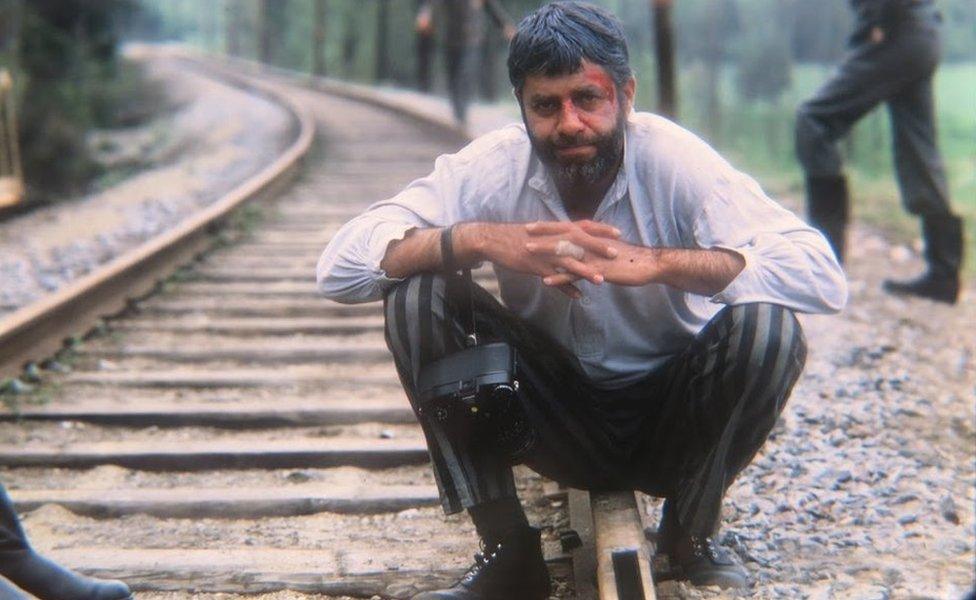
Jerry Lewis wrote and directed The Day the Clown Cried but seemingly lost heart in his project
In the early 1970s Hollywood actor Jerry Lewis started working on a Holocaust film so bizarre he ended up hiding all the footage and to this day it has never been seen.
But the BBC has uncovered a large collection of images for an exclusive online documentary about the strange movie, as producer Richard Latto explains.
The Day the Clown Cried told the story of a fictional clown, Helmut Doork, who was thrown into prison and eventually used to entertain children and lead them into the concentration camp gas chambers.
Lewis - at the peak of his career after success in The Nutty Professor and the Bell Boy - wrote and directed the film, and was at first very passionate about the idea. But perhaps even he eventually found the subject matter too harrowing.
The film has never been released, with only a handful of people claiming to have seen anything from the production. Lewis himself avoids questions about it during interviews and public appearances.
For the BBC documentary The Story of Day the Clown Cried, presenter David Schneider went to hear the stories of people close to the production, including the late Lars Amble, who played a Nazi guard.
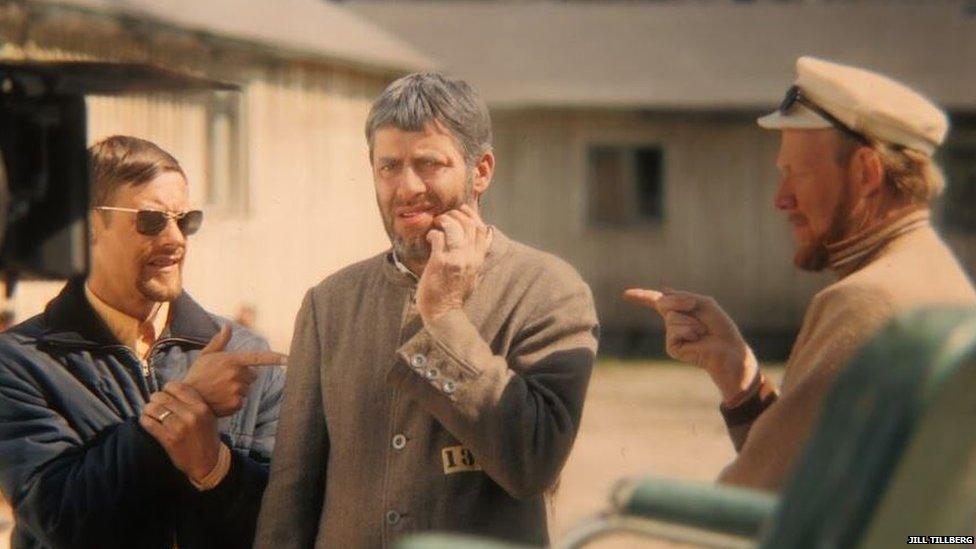
Production of The Day the Clown Cried was reportedly plagued with problems
Amble remembers being asked to take part by Lewis: "He was staying in Stockholm in a hotel. He called me up, I went to his room and suddenly he says I know which part you are going to have, a very mean guy.
"He was a very professional actor and director. He gave us all confidence."
Jack Kotschack was one of the producers. His son Erik remembers the period well when his father was working on the production.
"He was very thrilled to do this, to be part of it. When they made a decision to shoot the scenes from the concentration camp in Sweden, my father was the guy who made it possible.
"Jerry Lewis was big at that time. It was a big story for Sweden. He was a person who took [control of] the room, a big character and actor."
But the production was beset with problems and Kotschack says the working relationship between his father and Lewis fell apart.
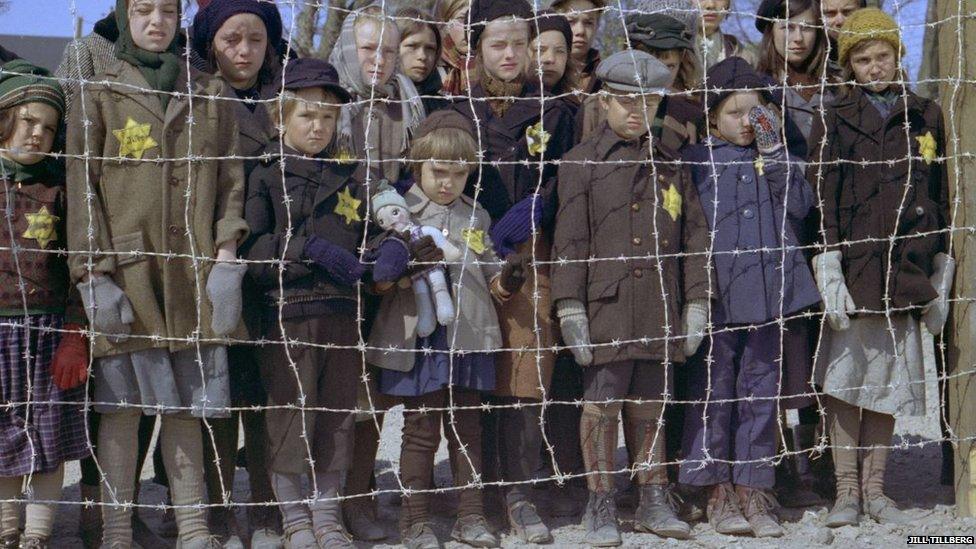
Yael Fried from the Jewish Museum in Stockholm says: 'We need different ways and methods of understanding the Holocaust and fiction can help us with that'
"He sent a telegram 'to the smallest man in town from Jerry Lewis to Jack'.
"In the beginning they were best of friends but in the end not so."
There are many people on the internet who have circulated alleged copies of the script, and even some who have attempted to re-enact the entire film online.
So what is the fascination with this project?
"This is a very interesting film because very few people have seen anything from it," says Jan Lumholdt, a film critic based in Sweden.
"He's a comedian and this is his most serious film ever. This gives it a very interesting energy and dynamic.
"I always felt that there are countless examples of great dark serious performers and dark work by comedians, there is a certain touch to it."
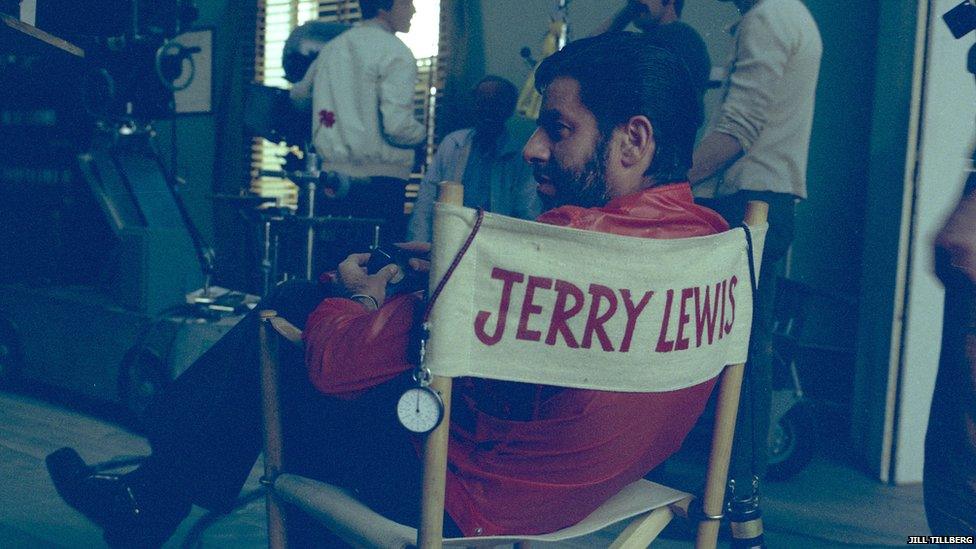
The film also shares previously unseen archive footage of Lewis being interviewed on the set
There have been many films about the Holocaust and it's often hard to come to terms with a fictional story set during this dark period in history. But Yael Fried, project manager of the Jewish Museum in Stockholm, is in favour of such projects.
"We need different ways and methods of understanding the Holocaust and fiction can help us with that," he says.
"You can use fictional characters in a real environment. I think you have to be careful and very clear that it's fiction."
It's rumoured by many that Lewis attempted to introduce moments of comedy into the production. The main character's name was seemingly changed from Karl Schmidt to Helmut Doork.
"As the child of a Holocaust survivor - my mother got out of Vienna in 1938 along with her playwright father and actress mother - the Holocaust was something that I have always been very aware of," says Schneider.
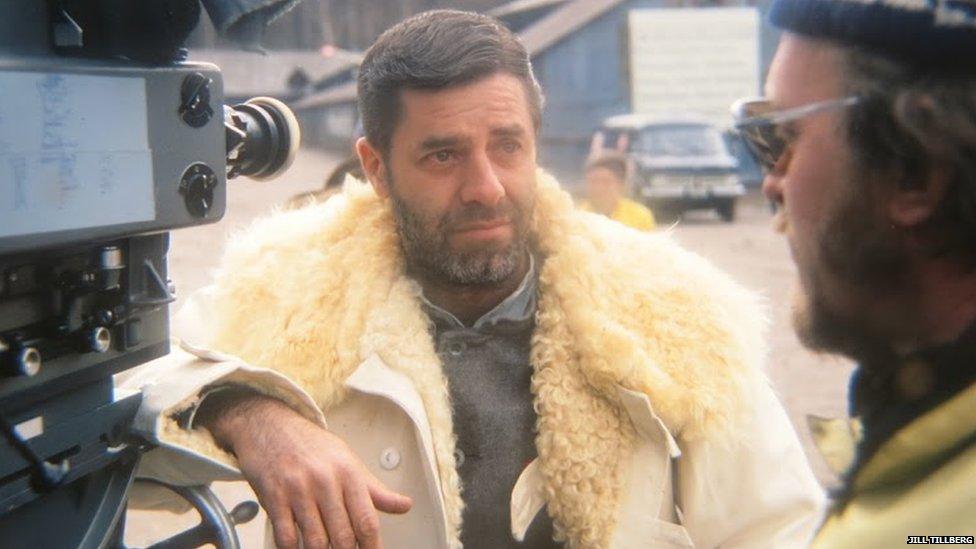
Jerry Lewis: "Comedy is our safety valve, without it I think we would disappear, evaporate"
"As a comedian, I've always been fascinated by whether you can do comedy about such a difficult and taboo subject.
"I used to compere Jewish comedy gigs and I remember once getting a note passed to me backstage saying: 'We are a coach party of Auschwitz survivors come to see you. Please can you say hello to us during the gig?'
"And I just thought, what am I meant to do? Go on and shout: 'Hi, is there anybody from Auschwitz in the place tonight?'
"A lot of Jewish comedians found themselves exploring this area, just because it's so central to their identity."
The documentary also shares previously unseen archive footage of Lewis being interviewed on the set.
"Comedy is our safety valve, without it I think we would disappear, evaporate," he says.
"My philosophy of comedy is a man in trouble. There for the grace of God go I."
The Story of the Day the Clown Cried can be seen here: http://www.bbc.co.uk/programmes/p03dj9kr
It will also be available on the BBC's YouTube page and is due to be broadcast on BBC TV at a future date.